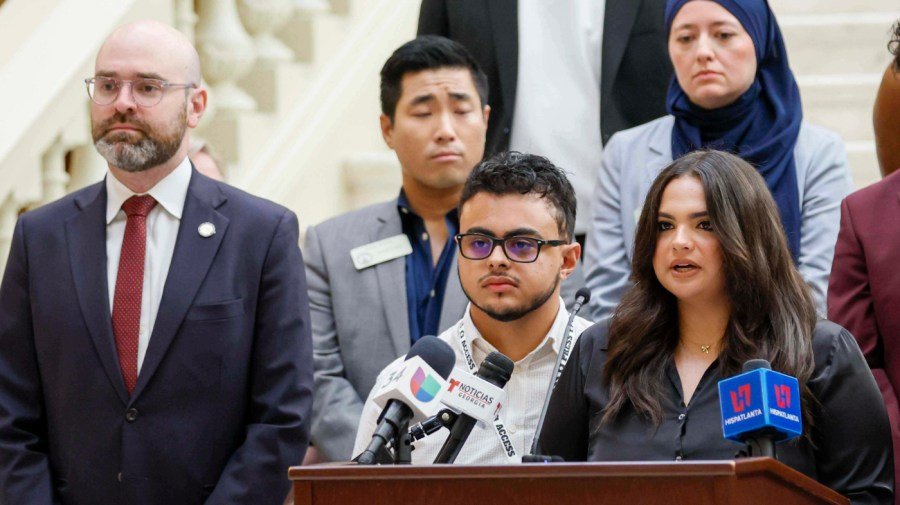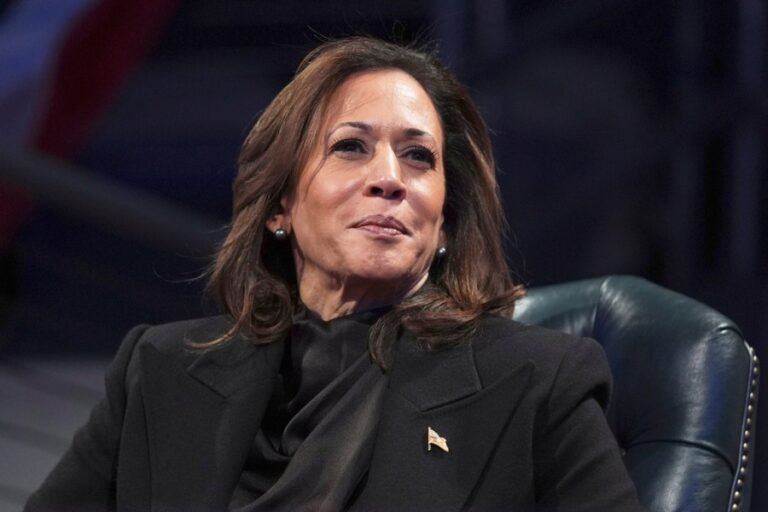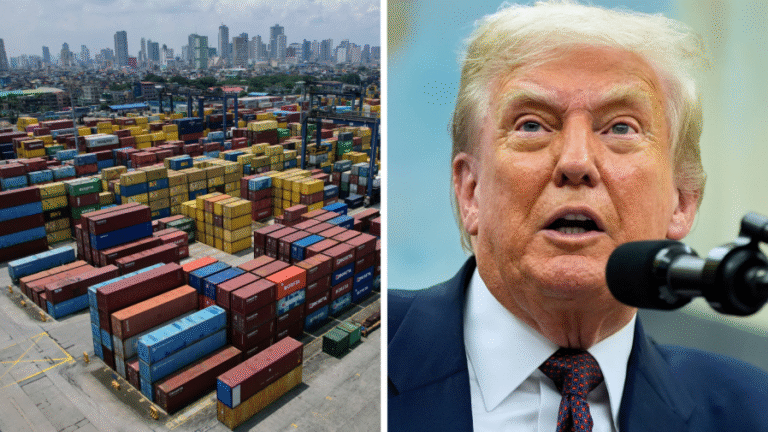
American leaders have long condemned authoritarian regimes for jailing reporters like Khaled Mamdouh, an Egyptian journalist accused of “publishing and broadcasting fake news,” among other fabricated charges. In his case, the Egyptian government continues to manipulate the law to detain him.
Now, the U.S. government is using its own draconian methods to detain Mario Guevara. The Committee to Protect Journalists says that he is the only journalist in custody in the U.S. for actions related to newsgathering.
On June 14, Guevara was arrested while live-streaming a protest near Atlanta. He was standing on a sidewalk when he briefly stepped onto the street, deemed off limits by police.
Wearing a red shirt marked “PRESS,” he identified himself to officers, saying, “I’m a member of the media.” Though Guevara is authorized to be in the U.S. after fleeing El Salvador two decades ago, he was arrested, and promptly handed over to Immigration and Customs Enforcement.
A judge granted him bond, but ICE refused to accept the $7,500 payment, shuffling Guevara through multiple jails in order to keep him locked up. He remains behind bars today.
Guevara’s arrest comes as President Trump is leading a sweeping, coordinated campaign to undermine press freedoms and dismantle First Amendment protections. Each week, the administration’s attacks grow bolder, the consequences more devastating.
The nation that once demanded press freedom abroad is denying it at home — and emboldening other governments that persecute the press.
But this isn’t just an attack on journalism. It’s an assault on the very principles the First Amendment was designed to protect: free expression, an informed public and the right of every American to speak, learn and dissent without fear of government retaliation.
For decades, Democratic and Republican administrations have used diplomacy to free journalists unjustly detained abroad. Just last year, former President Joe Biden welcomed Wall Street Journal reporter Evan Gershkovich on the tarmac after the State Department secured his release from a Russian prison.
Now the U.S. is traveling down the autocratic road paved by China, Russia, Egypt and other nations with long records of repressing journalism by seizing control of the White House press pool, sidelining independent outlets that hold leaders to account and elevating loyalist media to deflect scrutiny.
With congressional backing, the Trump administration has defunded NPR and PBS and dismantled Voice of America, crippling outlets that amplify truth and democratic values.
Trump sued The Wall Street Journal and then barred it from an overseas White House trip in retaliation for its reporting on ties to Jeffrey Epstein. He politicized the traditionally independent Federal Communications Commission, using it to target disfavored media outlets in pursuit of partisan goals.
Meanwhile, corporate giants like Disney (ABC’s parent company) and Paramount Global (CBS’s parent company) offered millions of dollars to settle spurious lawsuits, capitulating to government intimidation and fueling the cycle of press freedom assaults.
In Trump’s second term, the message to media organizations is clear: Comply and be rewarded — the FCC approved Paramount’s $8 billion merger just days after the settlement — or face punishment.
The Trump administration is accelerating the erosion of First Amendment protections by targeting those who shine a light on stories he wants buried. Attacks on lawyers, judges, educators and civil society all come from the same authoritarian playbook.
It’s a coordinated, multi-pronged attack designed to fuel an information ecosystem where truth is replaced by state-approved narratives, and journalism is only prized if it serves power.
As all of this unfolds, the public appears significantly less aware of Trump’s assaults on the press than during his first term. In 2017, a Pew Research Center report early in his first presidency found 72 percent of U.S. adults had heard “a lot” about Trump’s relationship with the media, a number that was cut in half early in his second term.
While skepticism toward the media has grown, public apathy is also driven by reduced exposure to traditional news. Professional journalists now compete with social media clips, YouTube personalities and partisan echo chambers. The collapse of local news is accelerating civic disengagement as news deserts spread.
When a journalist like Guevara is unjustly detained, we lose stories that hold leaders accountable. When public broadcasters like NPR and PBS are defunded, rural communities lose trusted sources of information.
The First Amendment invites scrutiny, which threatens this White House. The courts, Congress and corporations have shown little interest in constraining the administration. The burden now falls on the public.
We must demand Guevara’s release and reject the criminalization of journalism. We must support local news and defend credible reporting. Protecting press freedom isn’t just about journalism, but safeguarding our own right to speak, dissent and know the truth.
In Egypt, Mamdouh has entered his second year of pretrial detention. The question now is whether America will act to defend Guevara, or continue to fall in lockstep with nations it once condemned.
Tim Richardson is director of PEN America’s Journalism and Disinformation program.


